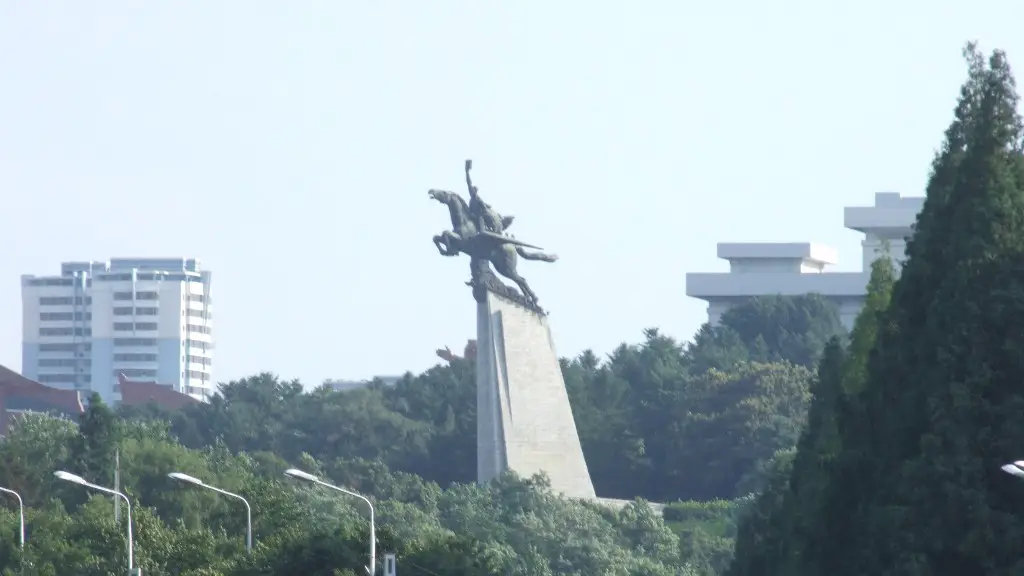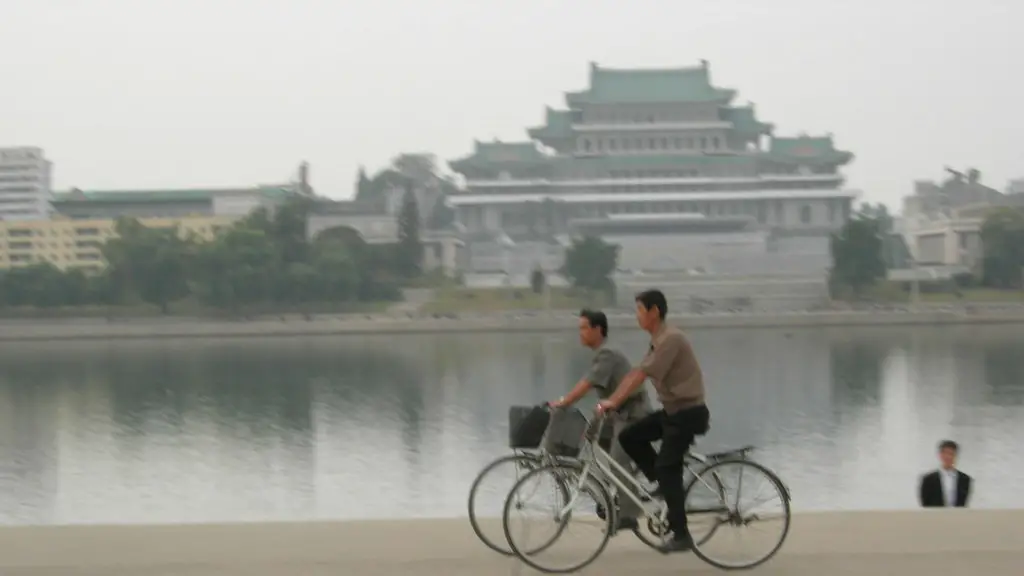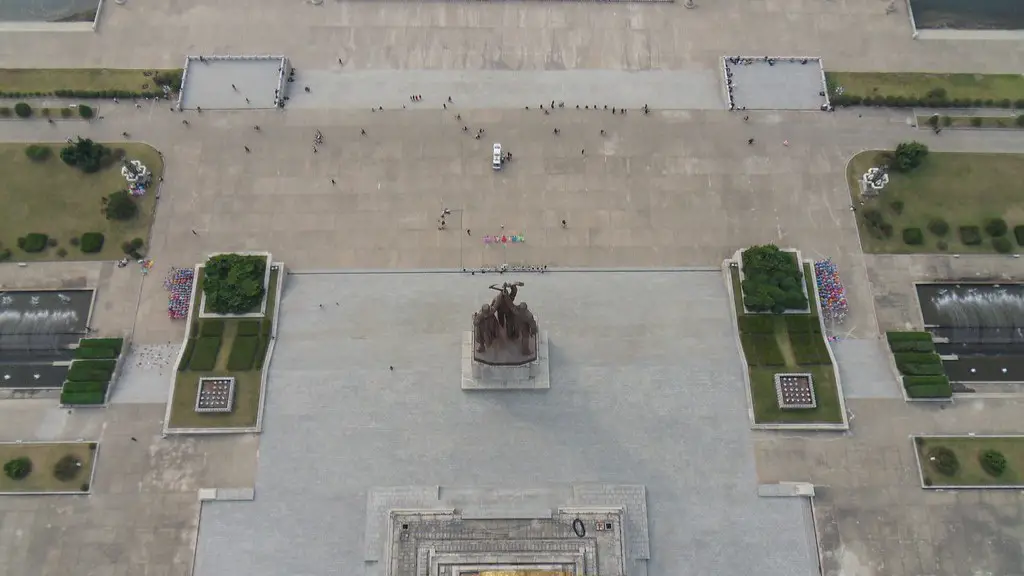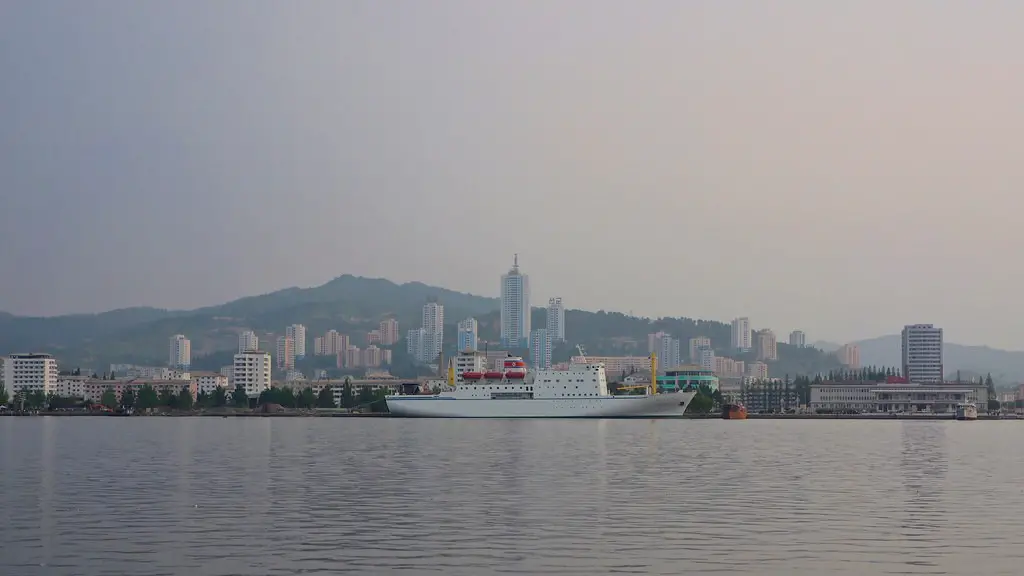Exploring the Risks of North Korea’s Textile Industry
By purchasing a t-shirt, shoppers around the world may not be aware of the source of their garment and of the working conditions the labourers faced to produce it. A growing market of substandard clothing production is occurring in North Korea and has been linked to the use of forced labour. Consumers shopping for cheap clothing can be unknowingly contributing to the exploitation of North Korean workers.
North Korea has strict laws in place to maintain national security and is known to have minimal contact with the rest of the world. While this creates additional challenges to monitor such working conditions, some apparel companies have looked to move production to North Korea in order to benefit from the cheaper labour and materials as well as to remain profitable.
Recent reports from industry analysts have revealed the distribution of t-shirts and apparel from plants in North Korea. With the influx of production facilities, industry experts are questioning the true cost of the low-priced garment. Human rights organisations have strong evidence of infringements to basic labour rights taking place inside the factories of North Korea.
These violations include reports of forced overtime and personal intimidation, as well as deplorable accommodations for working personnel. Workers can be subjected to 13 hour shifts for less than a minimum wage and experience a volatile environment with constant uncertainly.
One international apparel firm, revealed their recent association with North Korea, which surmounted to an extensive internal investigation. Ultimately, their research concluded that the company’s apparel production is strictly independent of any North Korean labour force. An official statement was released to ensure enhanced standards and transparency to the public.
Multinational companies selling apparel to local outlets have increasingly tightened regulations on their suppliers, yet they are not immune to the potential tension this decision can create. In the face of mounting criticism, apparel manufacturers are met with multiple criteria to ensure their production complies to labour regulations.
The Truth Behind the Unregulated
Although the regulations have led to an increase in production value, foreign companies are not completely free from scrutiny. Activists have shined light on the discrepancies between the labelling of products, the working conditions of employees and the actual source of labour.
Organisations such as Human Rights Watch have conducted numerous interviews in undisclosed locations in order to find out the truth of what is happening in the North Korean factories. Many of the workers reported to live in cramped living quarters with fewer food rations and are subjected to dangerous conditions with limited days off.
In addition to their scrutiny of the North Korean textile industry, Human Rights Watch uncovered the ways in which production facilities were able to evade external scrutiny. To begin with, the undisclosed factories employ undocumented workers, while they often ship their apparel through markets such as China.
The apparel is subsequently knowingly mislabelled to mislead consumer and buying companies in Europe, the United States and elsewhere. Such deception on the part of the North Korean government has led to an international wave of criticism, with many citing the violations of ethical and moral standards.
These issues have yet to be officially and openly addressed by the North Korean government, despite the growing concern of the international community. It appears that the sales of t-shirts made in North Korea will continue to remain lucrative for a state that is effectively sanctioning the exploitation of their labour force.
The Coercive Climate for Workers
Workers in North Korean production plants are reportedly coerced to sell their labour under harsh working conditions, with limited contracts and oversight by the government. This coercive climate poses a particular risk, as possible exploitation and physical abuse in the workplace can easily be hidden and compounded by the workers’ fears.
Moreover, independent labour unions are not allowed in North Korea and obscure regulations often make it difficult for outside organisations to assess the condition of labour rights. This lack of legal protection and outside monitoring has led to some of the lowest labour standards in the world.
Companies that outsource their production, directed to North Korean production plants, may believe this unethical and despotic regime is unconcerned with their reputation. Therefore, it is difficult to pressure the government into taking significant steps to address the situation, which includes the transportation of apparel to Europe, Asia and the US.
These companies are therefore taking advantage of the current circumstances to gain massive profits, ignoring the price that North Korean citizens are paying for it.
Exploitation vs. Investment
The exploitative and devious nature of the North Korean textile industry has raised questions and criticism among the international community. Businesses that outsource to North Korea pose a peculiar set of ethical issues, as it drives much needed capital into an isolated state. The current prevalence of unregulated production and deplorably poor working conditions has made it nearly impossible to monitor the situation and report any sort of industry improvement.
Industry experts clamor for stricter regulations and round table discussions to address the urgent need for reform in the North Korean textile industry. Consumers must be aware of the source of their garments and educated to take appropriate action, as it is the responsibility of foreign organizations and shoppers worldwide to contribute to the betterment of the industry.
A Renewed Commitment to Human Rights
Industry analysts are calling for a renewed commitment to the ethical principles of human rights and labour regulations. This commitment can be demonstrated through the use of non-governmental organisations and public pressure to ensure North Korean workers are being given the same respect and rights that labour laws in other countries protect.
Organisations are hoping that this public outcry will force the companies selling apparel to North Korean markets to be transparent and to take corrective action. It is through this rejection of the unethical production that consumers can truly hold the markets accountable to their responsibility of humanity.
Reforming with Authority
It is important that international organizations, including the International Labour Organisation, cooperate to lead the charge for these necessary reforms. The credibility of these organisations is evidenced by their ability to pressure foreign markets and produce quick, effective change. Such improvements can include updated regulations targeting human trafficking, forced labour and inadequate working conditions.
Furthermore, the presence of NGOs in North Korea can aim to enforce the regulations, providing training for key personnel, creating meaningful change and improving the lives of those employed in the textile industry.
Conscious Consumerism
Prospective customers must take an additional step before making purchases and ensure they are buying apparel from morally responsible and transparent companies. Such an understanding of ethical production cannot be done overnight, as it requires companies to be mindful of the history of production and the stories behind the clothing.
In order to make an informed decision, consumers must understand that cheap garments may be too good to be true, as it could mean the price is the result of exploiting North Korean workers and or cheaper labour and materials. Once the knowledge is acquired, they are then obligated to take action and encourage responsible production.
Change in the Air
Action is being taken to fight the cruel working conditions in North Korean factories. Companies are considering to take a more ethical approach and are increasingly becoming more transparent with their production and distribution of apparel.
This transparency is a step in the right direction, as customers may be more inclined to purchase from these companies, thereby making a conscious decision to purchase from an ethical source. All of this provides hope to those working in the North Korean labour force and the world at large.





